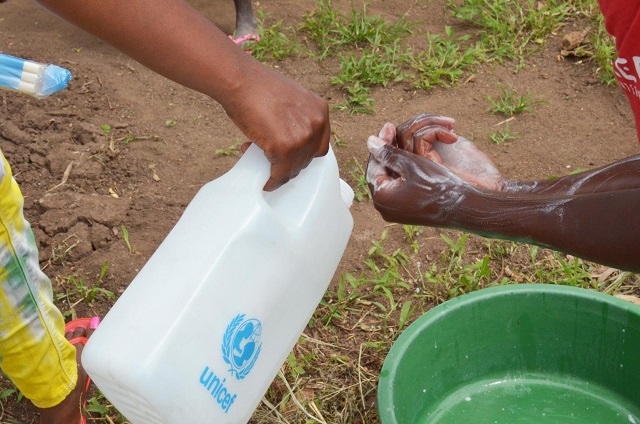
Kampala, Uganda | THE INDEPENDENT | Public health experts at Makerere School of Public Health have asked the public to carry out proper hand washing in the wake of the coronavirus pandemic.
According to public health experts, poor hand washing is one of the areas that is likely to lead to an easy spread of COVID 19 in the country. Research says that more than 80 percent of the people suffering from the disease globally were likely infected through their hands.
The experts say that the country is at risk since over 85 percent of people do not carry out proper hand washing while using water and soap, an alcohol sanitizer or when using a hand washing solution.
Dr David Musoke, an environmental health expert at the Makerere School of Public Health says that it’s very important for people to wash their hands as often as possible.
Hand washing is one of the emergency preventive measures that the World Health Organisations and the ministry of health are advocating in the wake of the COVID 19 outbreak.
According to Musoke, for one to wash their hands well, they should be able to recite the entire Alphabet. Other researchers say that people washing their hands should take at least 20 seconds to do so or sing the ‘Happy Birthday Song’ at least once.
Dr Musoke explains that during proper hand washing, includes focusing on the palmsprimarily, washing in between the fingers and the thumbs. It also includes paying close attention to the wrists and fingernails to make sure all dirt is removed.
He says people with artificial or long fingernails might have to take more time to ensure that no bacteria are left under their fingernails.
After washing hands, people should avoid using their clothes to wipe the hands. Dr Musoke suggests the use of air drying, a hand drier or tissue.
Dr Issa Makumbi, the Director of Public Health Emergency Operation Center at the ministry of health says that it is important for people to wash their hands more than six times any given day.
“People need to wash their hands as frequently as possible. They should wash their hands all the time. Everything they get into contact with any surface even books or pens, they should wash their hands afterwards. After touching a doorknob or lift button, they should wash their hands. When they exist a taxi and touch a seat or door or window, they should wash their hands. After they touch money because research shows the virus can stay attached to objects for long,” Dr Makumbi said.
According to research, the COVID 19 disease-causing virus can stay attached to any object, clothes inclusive for up to nine hours before it can be destroyed by environmental factors such as weather.
While handwashing is being advocated for by health experts as one of the most effective ways of keeping COVID 19 away, there needs to be a big shift in behaviour. Most Ugandans do not wash their hands but the few that do associate the practice with toilet visits.
According to a 2014 report released by the Ministry of Water and Environment, 32.7 percent of Ugandans wash their hands with soap and water after visiting the toilet.
Esther Namagembe, a hairdresser in Galilaya Arcade located in downtown Kampala says that hand washing will not stop the spread of the disease. She says it is unrealistic for the government to expect them to wash hands frequently when they are always busy.
Antonio Ssemwanga, a taxi tout staged at Kamwokya stage says that washing hands should not be an issue.
“African germs are not aware of diseases. Even if you pick something from the ground and eat it, you won’t fall sick. The germs know that we Africans are resilient so they don’t waste their time. Copying habits of the whites like hand washing might instead expose you to diseases,” Ssemwanga said.
******
URN
 The Independent Uganda: You get the Truth we Pay the Price
The Independent Uganda: You get the Truth we Pay the Price


